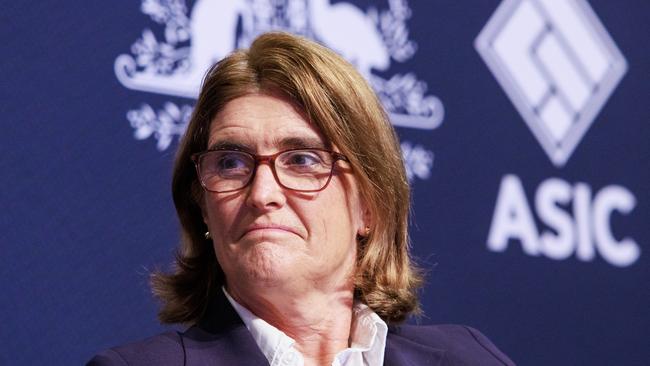Inflation now a ‘homegrown’ problem, RBA governor Michele Bullock says
Reserve Bank governor Michele Bullock has warned the nation should brace for a protracted battle against ‘increasingly homegrown’ inflation.

Reserve Bank governor Michele Bullock has warned the nation should brace for a protracted battle against “increasingly homegrown” inflation, even as she recognised that aggressive rate rises were “squeezing” mortgaged households.
Just over two weeks since the RBA board delivered a 13th rate hike “to be more assured that inflation returns to target in a reasonable time frame”, Ms Bullock used a speech at the annual Australian Business Economists dinner on Wednesday evening to push back against critics who say smashing families with higher interest rates would do nothing to address inflation driven by factors such as petrol and rents.
“It is true that supply-side disruptions were the most prominent driver of the initial surge in inflation around the world over recent years,” she said, referencing the Covid disruptions to trade followed by the surge in global energy and food prices triggered by Russia’s invasion of Ukraine.
But she warned the remaining inflation challenge is “increasingly homegrown and demand driven”.
“While the easing of these global supply issues have translated into some easy early wins on inflation, the next phase will prove more difficult,” Ms Bullock said.
“It took only three quarters for inflation to fall from 8 per cent to 5.5 per cent as the supply-side issues eased, and there is some more to go there. But we expect it to take another two years for inflation to fall that much again and move below 3 per cent,” she said.
“This is because much of the remaining task of bringing inflation back to target will require bringing aggregate demand and aggregate supply into closer alignment.
“That is what the board is aiming to do with monetary policy – to slow the growth of demand enough to bring inflation back to target while keeping employment growing.”
Ms Bullock said price rises for about two thirds of items in the consumer price index basket were above – and often a long way above – 3 per cent.
“So inflation is much broader than just rising prices for petrol, electricity and rents – prices are rising strongly for the majority of the goods and services we all consume,” she said.
Inflation was also increasingly being driven by “strong” increases in the cost of services, such as hairdressers and dentists, dining out, sporting and other recreational activities.
“Labour costs have risen, especially when we incorporate the effect of weak productivity growth, and the price of domestic non-labour costs such as energy, business rents and insurance has increased noticeably,” Ms Bullock said.
Finally, she added that there was also evidence of “limited spare capacity”, most notably in the still tight labour market.
Ms Bullock recognised that her message on the need to slow the economy to get inflation under control “will not resonate with some”.
“I receive letters from people who are finding it difficult to make ends meet and I speak with organisations that assist struggling households. Everyone is seeing prices for goods and services rise strongly but this has a particularly severe impact on low-income households. This emphasises the need to get inflation back down,” she said.
“I also know that interest rate rises are squeezing the finances of households with a mortgage.
“But while the board recognises there is a wide diversity of experience, the bank’s statutory objectives are economy-wide outcomes, and our key tool – the interest rate – is a blunt one.
“The board must therefore set its policy to serve the welfare of Australians collectively.”








To join the conversation, please log in. Don't have an account? Register
Join the conversation, you are commenting as Logout